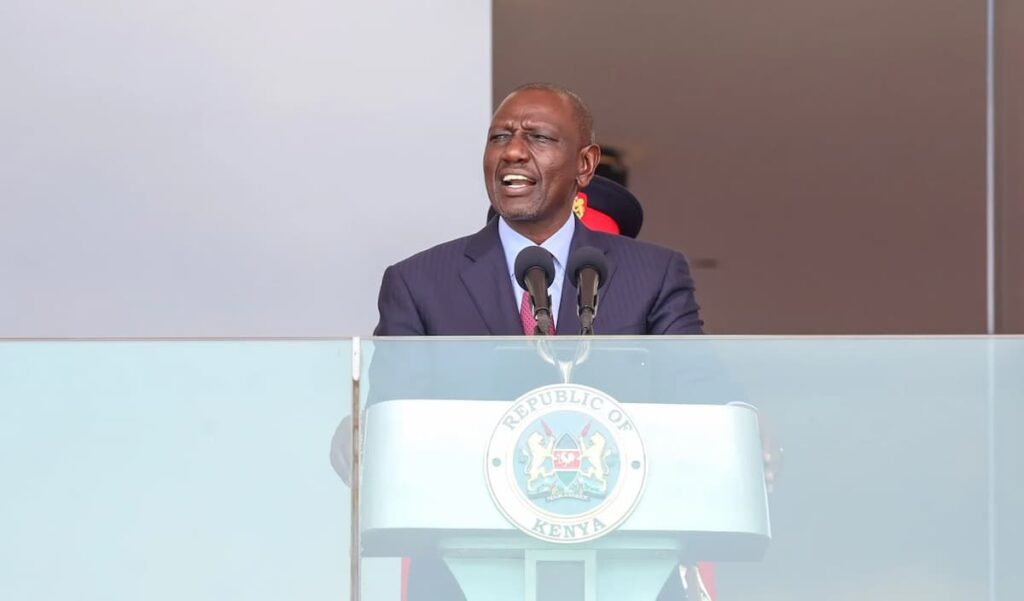- President William Ruto’s announcement of Kenya’s visa-free entry policy for all visitors starting January 2024 marks a paradigm shift in the region’s economic and social landscape.
- The policy is expected to boost Kenya’s economy by attracting more tourists and business travellers, thus increasing revenue and foreign exchange.
- Addressing the accompanying challenges will be crucial to ensuring the policy’s success and sustainable growth in the region.
Kenya, a country known for its rich wildlife, vibrant culture, and dynamic economy, is poised to make a significant leap in becoming a hub for investors and business in East Africa. President William Ruto’s announcement of Kenya’s visa-free entry policy for all visitors starting January 2024 marks a paradigm shift in the region’s economic and social landscape. As the visa-free entry date nears, it is important to explore how Kenya is set to redefine the dynamics of business and investment in East Africa.
Overview of the Kenya’s Visa-Free Entry Policy
Starting January 1, 2024, Kenya will abolish visa requirements for international travellers, a decision announced by President Ruto to enhance trade and tourism in the East African nation. This policy signifies a significant shift from traditional visa procedures, aiming to streamline entry processes with electronic travel authorisation.
Boosting Trade and Tourism
The visa-free entry policy is expected to considerably boost Kenya’s economy, particularly in the tourism sector. With this move, Kenya joins a select group of African countries offering similar access, including Rwanda, Seychelles, Gambia, and Benin. This policy simplifies travel, attracting tourists and business travellers whom visa complexities might otherwise deter.
Enhancing Regional Integration and Economic Inclusion
Kenya’s decision aligns with broader efforts towards economic globalization and regional integration. It is seen as a step towards fostering a more borderless Africa, similar to the European Schengen Agreement, enhancing trade, economic growth, and unity across the continent. Additionally, it contributes to economic inclusion, benefiting poorer countries reliant on tourism, trade, and foreign investment.
Attracting Global Investors: The “Dubai of Africa”
The visa-free policy is a strategic move to position Nairobi as the new Dubai of Africa. It is set to attract more businesses due to the ease of movement, thereby stimulating Kenya’s economy and fostering economic growth across the African region. This inclusive approach is expected to lead to shared prosperity and contribute to the advancement of the entire continent.
Boosting Trade and Tourism
Kenya’s visa-free entry policy is set to substantially bolster its economy, particularly through the tourism sector. In 2022, Kenya’s GDP growth was recorded at 4.8%, demonstrating resilience even amid global financial challenges, including the COVID-19 crisis. This growth was primarily fueled by the service sector, particularly financial services, tourism, and transport, contributing about 80% to the GDP increase. By simplifying travel, Kenya expects to attract a larger number of tourists and business travellers, further enhancing its economic stability and growth potential.
Enhancing Regional Integration and Economic Inclusion
Kenya, with a GDP of $119.66 billion and an average annual growth rate of 4.5 per cent, is the largest economy in East Africa and a significant player in Sub-Saharan Africa. It serves as the regional economic, commercial, and financial hub and the logistical gateway of East Africa.
The Nairobi Securities Exchange (NSE) is one of the most developed stock markets in Eastern and Central Africa and among the top five in Africa. With a total market capitalization of US$19.72 billion, it far exceeds those of neighbouring countries, highlighting Kenya’s dominant financial position in the region.
Moreover, Kenya is emerging as a formidable financial centre in Africa, surpassing South Africa in some aspects. It is recognized for its robust digital infrastructure, renewable energy capacity, and favourable economic and political landscape. These factors contribute to its growing appeal to foreign investors and multinational companies, positioning Kenya as a promising destination for economic growth and investment in sub-Saharan Africa.
Read Also: World Bank tips Kenya on how to drive inclusive growth and tackle poverty
Addressing the Challenges and Risks
While the visa-free entry policy has many potential benefits, it also poses certain risks and challenges. Concerns include security issues and the impact on job markets, housing, and healthcare due to increased immigration. Addressing these challenges requires strategic planning and cooperation among East African nations to ensure the policy’s long-term success.
Q&A on Kenya’s New Visa Policy
What impact will the visa-free policy have on Kenya’s economy?
The policy is expected to boost Kenya’s economy by attracting more tourists and business travellers, thus increasing revenue and foreign exchange.
How does the policy contribute to regional integration?
By allowing easier access for African citizens, the policy promotes economic collaboration and shared growth among East African countries.
What are the potential risks of the policy?
There are concerns regarding increased immigration leading to competition for jobs, housing, and healthcare services within Kenya.
Conclusion
President William Ruto’s visa-free entry policy marks a significant stride towards transforming Kenya into a central hub for business and investment in East Africa. By fostering economic inclusion, stimulating trade and tourism, and enhancing regional integration, Kenya is well on its way to becoming the “Dubai of Africa”. However, addressing the accompanying challenges will be crucial to ensuring the policy’s success and sustainable growth in the region.











